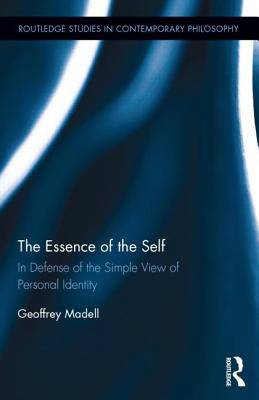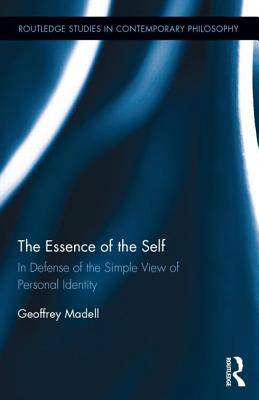
- Retrait gratuit dans votre magasin Club
- 7.000.000 titres dans notre catalogue
- Payer en toute sécurité
- Toujours un magasin près de chez vous
- Retrait gratuit dans votre magasin Club
- 7.000.000 titres dans notre catalogue
- Payer en toute sécurité
- Toujours un magasin près de chez vous
Description
In this volume, Geoffrey Madell develops a revised account of the self, making a compelling case for why the "simple" or "anti-criterial" view of personal identity warrants a robust defense. Madell critiques recent discussions of the self for focusing on features which are common to all selves, and which therefore fail to capture the uniqueness of each self. In establishing his own view of personal identity, Madell proposes (a) that there is always a gap between 'A is f and g' and 'I am f and g'; (b), that a complete description of the world offered without recourse to indexicals will fail to account for the contingent truth that I am one of the persons described; and (c), that an account of conscious perspectives on the world must take into account what it means for an apparently arbitrary one of these perspectives to be mine. Engaging with contemporary positions on the first person, embodiment, psychological continuity, and other ongoing arguments, Madell contends that there can be no such thing as a criterion of personal identity through time, that no bodily or psychological continuity approach to the issue can succeed, and that personal identity through time must be absolute, not a matter of degree. Madell's view that the nature of the self is substantively different from that of objects in the world will generate significant discussion and debate among philosophers of mind.
Spécifications
Parties prenantes
- Auteur(s) :
- Editeur:
Contenu
- Nombre de pages :
- 144
- Langue:
- Anglais
- Collection :
Caractéristiques
- EAN:
- 9781138823945
- Date de parution :
- 16-12-14
- Format:
- Livre relié
- Format numérique:
- Genaaid
- Dimensions :
- 152 mm x 229 mm
- Poids :
- 381 g







